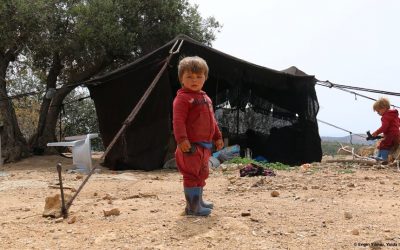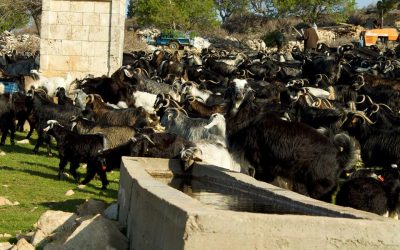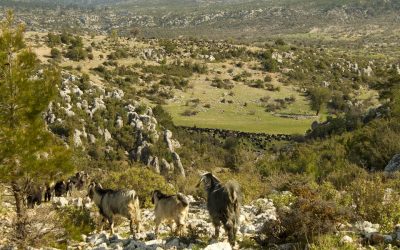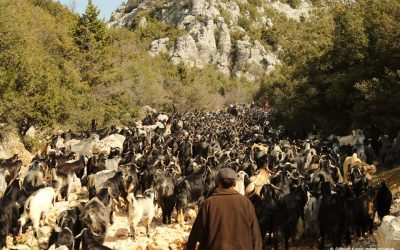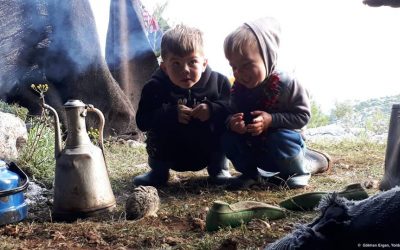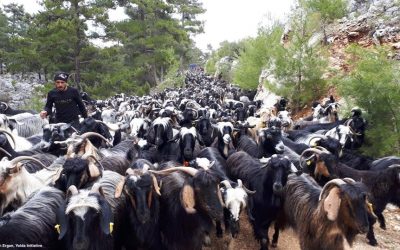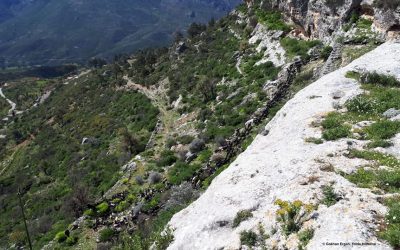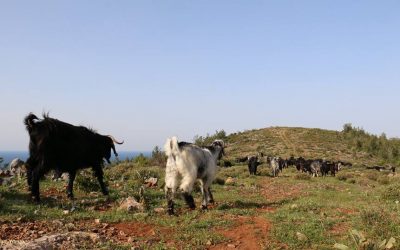Mobile Pastoralism Contributes to Habitat Heterogeneity (Day 12)
On the 12th day, th Bacak family of Sarıkeçili nomadic pastoralists travelled 104km up to an altutude of 1666 meters. Having now reached the top of the Taurus Mountains the herd starts to move towards the steppes of central Anatolia. Mobile pastoralists who cross a variety of habitats from the Mediterranean shores to the steppes of inner Anatolia play a significant role in contributing to habitat heterogeneity and maintaining connectivity between them. The scale of connectivity and heterogeneity are inextricably linked, and the movement of mobile pastoralists with their livestock between winter and summer landscapes contributes to habitat heterogeneity and diversity of species of different taxonomic groups, that this heterogeneity allows. It’s also through movement and the connectivity it ensures that this heterogeneity is maintained, integrating these separated patches (structural connectivity) with species diversity and movement and ecological processes they support (functional connectivity) into a single functioning system, so the patches start to affect each other indirectly. In addition to structural and functional connectivity, and considering the forced shifting of species’ ranges to track suitable conditions due to climate change and other threatening processes, migration routes also contribute to evolutionary connectivity for plant species.
Mobile pastoralism ensures connectivity at a significant scale despite a strong decline in the practice and can contribute to the maintenance of a connected protected area system, integrated into the wider landscape. Therefore, among many other reasons, this is why mobile pastoralists protecting and maintaining these migration routes should be supported and empowered with existing conservation mechanisms. These include considering migration routes within the framework of Areas of Connectivity Conservation and Other Effective Area-Based Conservation Measures.
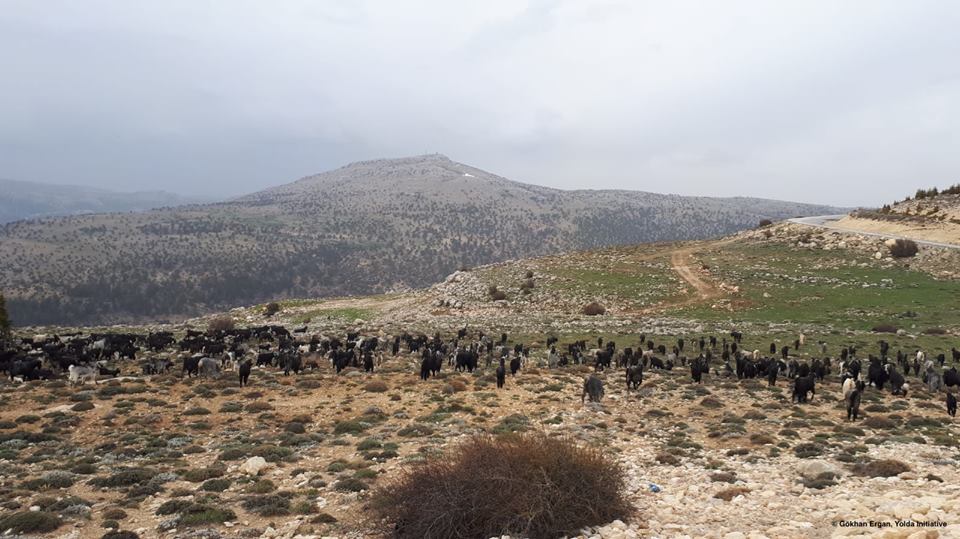
Read our stories from partners and practitioners.
Read our stories from partners and practitioners.
Migration is a School for Mobile Pastoralist Children (Day 8)
The spring migration taking place between April & June, and the fall migration taking place between September & October, coincides with school calendar and mobile pastoralists find themselves forced to leave their children with settled relatives or in dormitories....
Mobile Pastoralism has Direct Benefits for Water Cycle Regulation (Day 7)
One of the most interesting features of migration routes is the fountains - cisterns that were built by mobile pastoralists over thousands of years for both themselves and their livestock to access water. Today the majority of the fountains, cisterns with no...
Mobile Pastoralism Protects the Soil (Day 6)
Day 6 sees the herd and pastoralists cover 47km as they climb up to an altitude of 1227 meters. The seasonal mobility of animals means they leave the pastures just in time to allow vegetation to recover. Livestock grazing is an effective tool for soil stability,...
Mobile Pastoralism has an Indespendible Role against Wildfires (Day 5)
On the fourth day of the migration the herd moved 24km along corridors that were created by the movement of their ancestors through forests for thousands of years. Today the Bacak family of Sarıkeçili nomadic pastoralists decide not to move in order to rest their...
Mobile Pastoralism and Nature (Day 4)
Mobile pastoralism has persisted over the centuries thanks to its harmonious existence with nature. Relying on a constant interaction and interdependency with the nature has led practitioners to cultivate a rich body of traditional ecological knowledge, which in turn...
Mobile Pastoralism is the most Efficient Livestock Farming System (Day 3)
3 days into the migration and the herd has moved 22km - from and altitude of 230 meters to one of 790 meters. As they climb, both the herd's and the Bacak family's moods improve. Mobile pastoralism is the most efficient and sustainable livestock farming system in...
Mobile Pastoralism and Natural Cultural Heritage (Day 2)
On the second day of the spring migration the Sarıkeçili nomadic pastoralists are moving up towards the Taurus Mountains. In Turkey, mobile pastoralism is a major traditional practice which has shaped the country’s outstanding landscapes where three of the world’s...
On the Move with Sarıkeçili Nomads – Day 1
Yolda Initiative is on the move for the Spring Migration. Follow them during this long spring to see how mobile pastoralists in Turkey live in harmony with nature by migrating between summering and wintering sites according to seasonal availability - as they have been...

